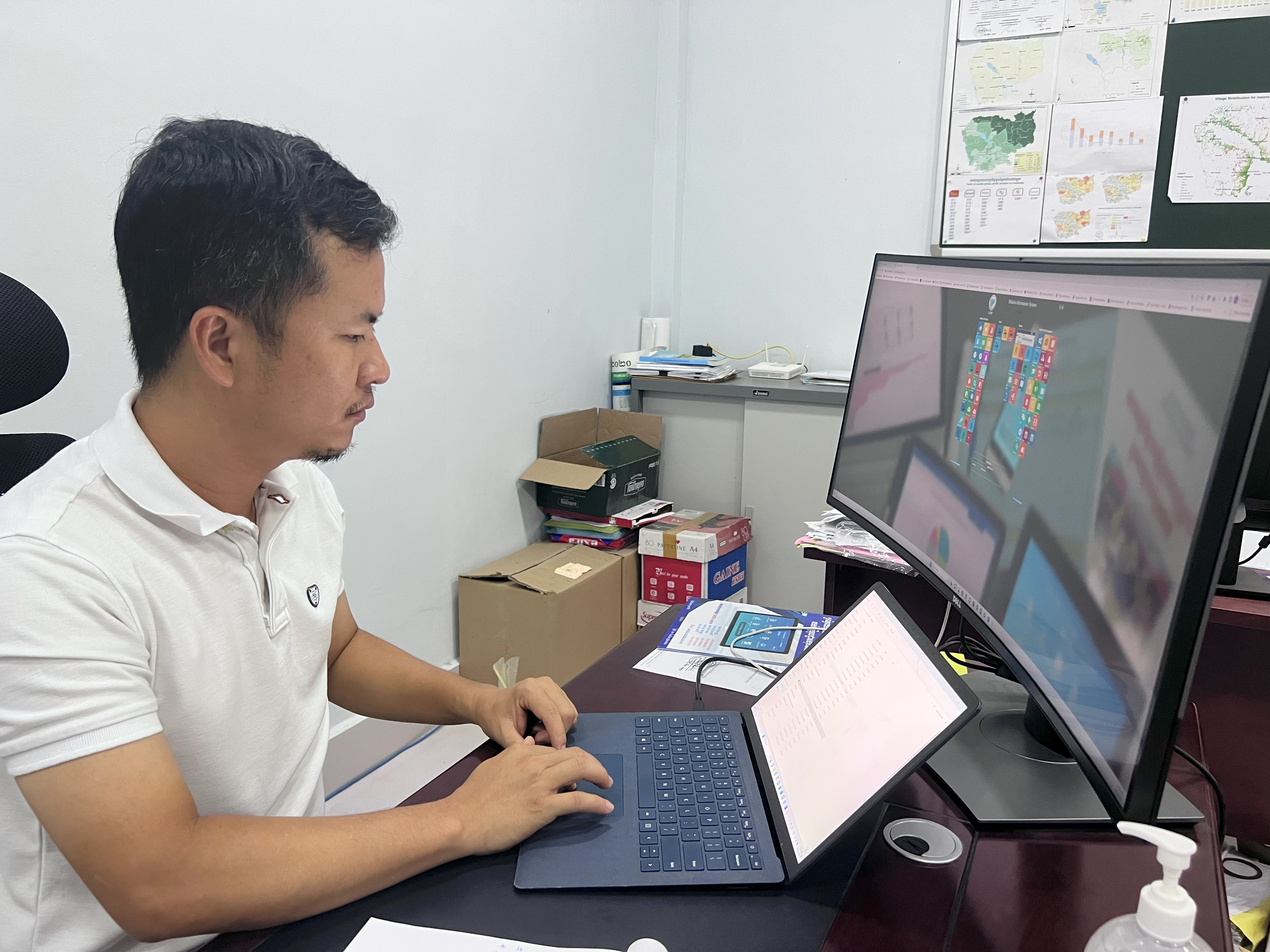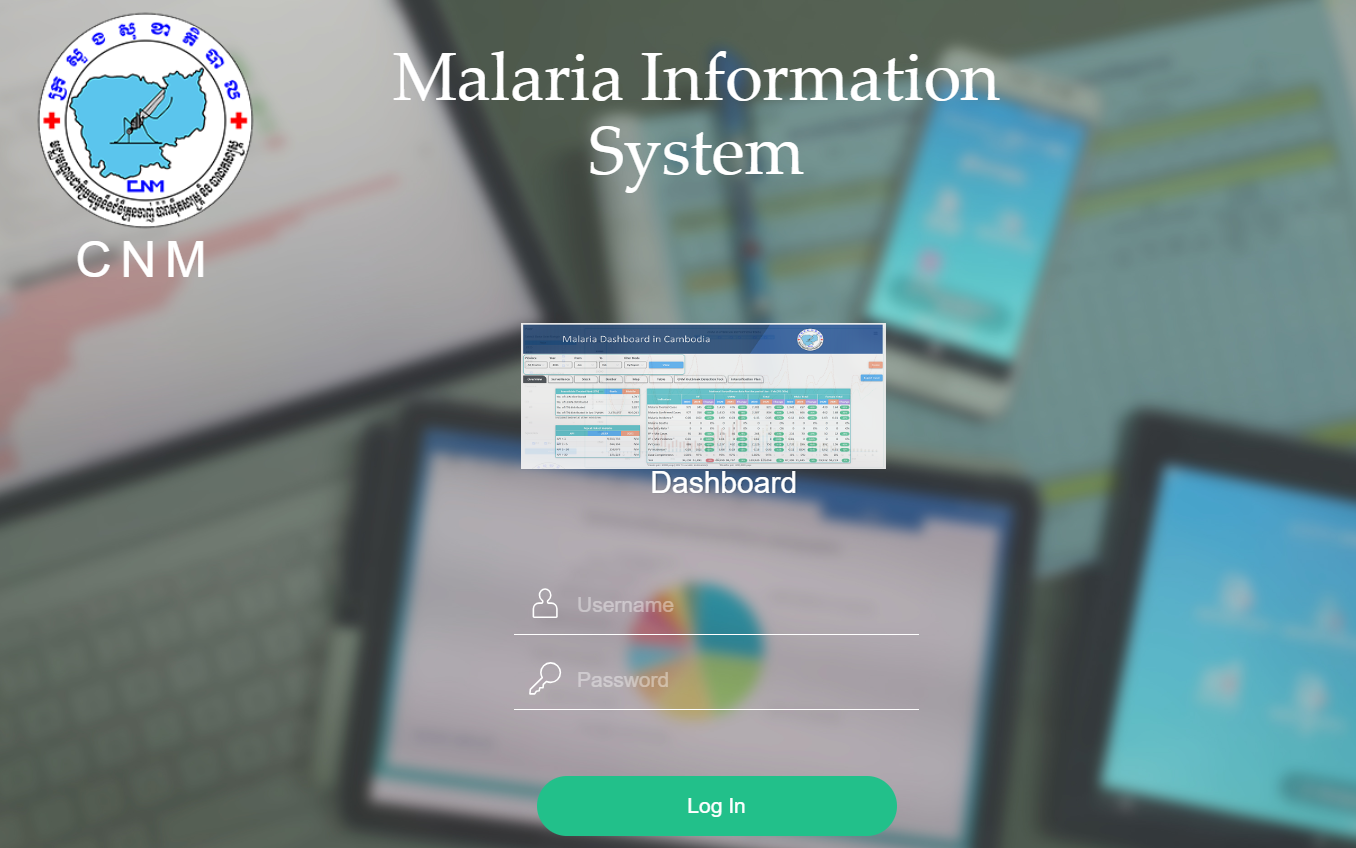Cambodia has been making great strides toward malaria elimination, which it is aiming to achieve by 2025. As the country moves toward this goal, it has been implementing an electronic system known as the Malaria Information System (MIS). Led by Cambodia’s National Center for Parasitology, Entomology, and Malaria Control (CNM), this online data management system is essential for tracking country-wide data related to malaria cases but had been lacking a key component to give a more holistic picture of malaria transmission.
According to Pengby Ngor, lead of the CNM’s MIS Unit, “Entomological data had been a missing element within the current MIS, which was a constraint in driving us forward to achieve the malaria elimination goals by 2025. Current functionalities of the MIS cover case management, including screening, detection, and treatment for malaria plus the commodity management and insecticide treated net distribution; some data are even entered real-time.”

Entomological data—for example, information linked to the types of mosquitoes transmitting malaria, their behavior, and testing their resistance to current insecticides—is critical for all countries, as it provides the evidence needed to inform vector control decision-making and to enable optimal interventions to be swiftly deployed. In Cambodia, where malaria cases have decreased significantly in recent years, groups of malaria cases often arise in “foci,” which are localized areas of transmission. Thus, entomological data is important in providing insight into the optimal selection and targeting of malaria control interventions that can stop malaria transmission.
With the support of the U.S. President’s Malaria Initiative (PMI) VectorLink Project, CNM began integrating this data into the MIS to complement the existing malaria case management information.
PMI VectorLink has been partnering with CNM since 2018, supporting CNM to conduct entomological surveillance in two provinces: Stung Treng and Mondulkiri. To assist CNM with this need, PMI VectorLink tapped into its existing entomological data for Cambodia, stored in the project’s own data management system, VectorLink Collect, which is a global system that houses robust vector control and entomological surveillance data across 25 countries, including Cambodia. VectorLink Collect was developed using the widely available District Health Information Software 2 (DHIS2) platform as its core.
The challenge for PMI VectorLink Cambodia was that CNM’s MIS platform is custom-built for Cambodia – meaning it isn’t built on DHIS2. Thus, to enable a seamless importation and transfer of VectorLink Collect’s entomology data into the MIS, the PMI VectorLink team had to design and develop data collection tools, user interfaces, and dashboards specifically to meet CNM’s MIS. Starting in July 2022, this six-month process included developing prototypes, testing, and integrating feedback for mosquito collection data and insecticide resistance data, which enabled creating a link between the entomology modules and malaria case data. When this work was completed, PMI VectorLink was able to transfer its existing Cambodia entomological data into CNM’s MIS to be accessed by CNM and used for routine purposes. This was the first time in the project’s six-year history that VectorLink Collect information has been used to help support a country to supplement its own proprietary information management system that is not based on DHIS2.

Of course, the key to success with any data system is ensuring that the people using the system can get what they need when they need it, and then use this data to inform their actions. PMI VectorLink worked with CNM to train MIS staff, entomologists, and provincial-level staff on data collection tools used as the foundation for the MIS, and then introduced the entomological modules within the system.
“The support of PMI VectorLink in adding this entomology module was important and relevant,” said Mr. Ngor. “The entomology module has become a complementary tool to better inform and use data from that module for decision-making.”
Today, Cambodia has a more comprehensive national information system for tracking, treating, and preventing malaria. With data available at their fingertips, CNM is sure to continue its progress toward malaria elimination.

